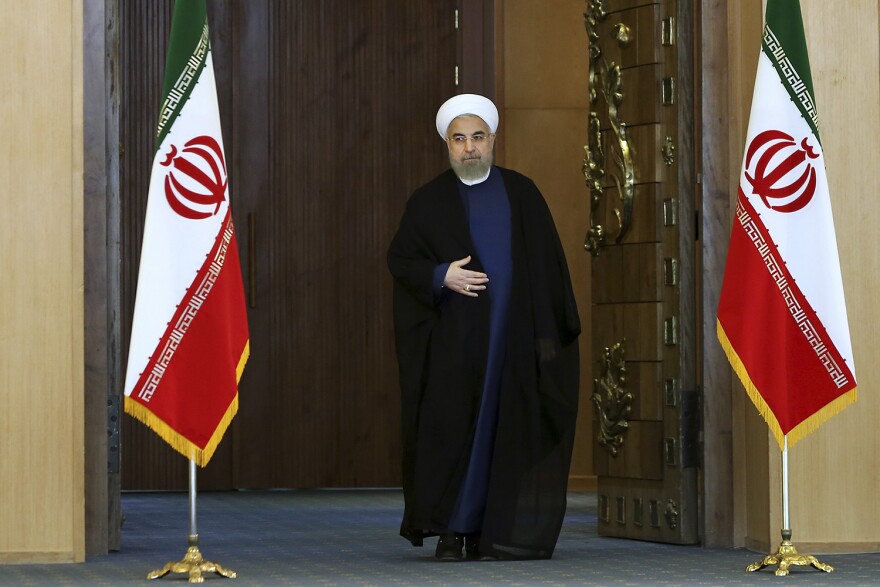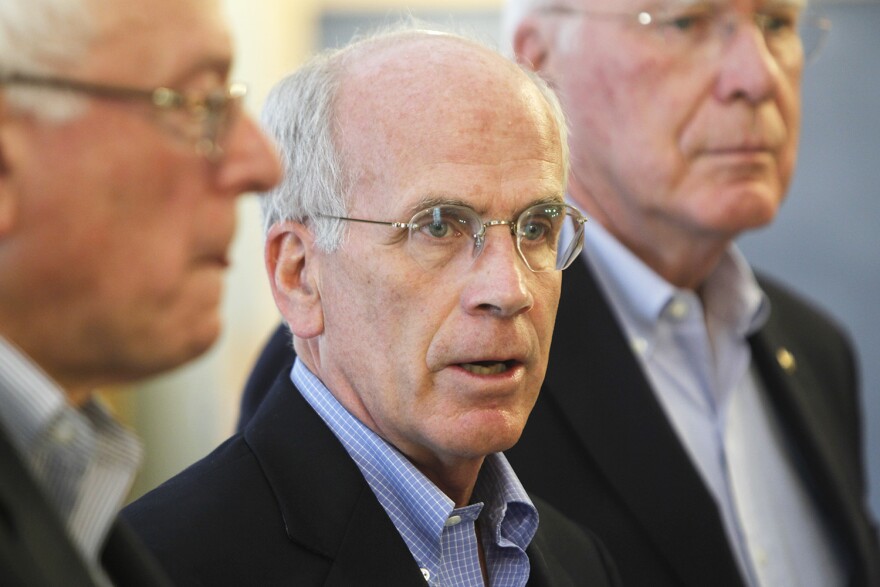All three members of Vermont's Congressional delegation say they are cautiously optimistic that a new agreement with Iran will ensure that Iran isn't able to develop nuclear weapons in the future.
Under the agreement, Iran will significantly reduce its stockpile of low-enriched uranium and it will eliminate two-thirds of its centrifuges.
The deal also lifts economic sanctions when the agreement is ratified by the United Nations Security Council. In addition, there's also a process to lift an embargo on weapons and missile technology over a period of years.
Sen. Patrick Leahy said he is "greatly encouraged" by the negotiated settlement.
"This is a lot better than any of these alternatives. We've gotten far more in this agreement than we thought we were going to originally."
Teams from the International Atomic Energy Agency will be able to inspect Iran's military bases to make certain that the Iranian government is in compliance with the terms of the agreement.
Leahy said the deal spells out consequences for Iran if it doesn't comply with any aspects of the deal.

"I think the most important thing here with the verification if Iran was to cheat, if they would decide not to go forward, then the sanctions of the U.N. and others would snap back in place," Leahy said.
Congressman Peter Welch said it was very important to find a diplomatic solution to prevent Iran from developing a nuclear weapon.
"The right direction is the only direction and that's a non-nuclear Iran,” Welch said.
“The question is do we get there through a diplomatic agreement or do we have the third major war in the Middle East to avert a nuclear Iran?”
And Welch said it's critical to maintain an ongoing verification process.
"What are our inspection rights? How do we get in? How do we on a regular basis know there is no cheating? That's number one. And number two, in the event that there is cheating, how do we have confidence that we can reinstate those sanctions that brought Iran to the table? So no, this is not based on trust. It's based on verification and enforcement," Welch added.
In a prepared statement, Sen. Bernie Sanders called the agreement "a victory for diplomacy over saber-rattling and could keep the United States from being drawn into another never-ending war in the Middle East."






